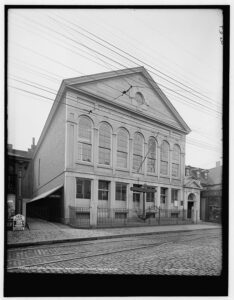Introduction: Salem’s Golden Age of Maritime Trade
 Salem, Massachusetts, is known worldwide for the infamous witch trials of 1692, but the city’s identity stretches far beyond its dark historical moment. In the late 18th and early 19th centuries, Salem emerged as a maritime powerhouse, fueled largely by the ambitious merchants of the East India Marine Society, Salem’s direct connection to the global trading empire established by the legendary British East India Company.
Salem, Massachusetts, is known worldwide for the infamous witch trials of 1692, but the city’s identity stretches far beyond its dark historical moment. In the late 18th and early 19th centuries, Salem emerged as a maritime powerhouse, fueled largely by the ambitious merchants of the East India Marine Society, Salem’s direct connection to the global trading empire established by the legendary British East India Company.
The Birth and Legacy of the British East India Company
Founded in 1600, the British East India Company was a powerful trading enterprise backed by royal charter, created primarily to capitalize on lucrative spice and textile trades with the Indian subcontinent and East Asia. At its height, it controlled half of global trade, becoming both immensely wealthy and politically influential. Its legacy, however, is deeply controversial due to its aggressive imperialist tactics, exploitation of local economies, and involvement in morally dubious trades—including the opium trade with China (Explore the British Library’s detailed history here).
Salem’s Connection: The East India Marine Society
Inspired by the success of their British counterpart, Salem merchants established the East India Marine Society in 1799, which became the heart of Salem’s thriving Asian trade. Ships departed Salem Harbor to Sumatra, Canton (Guangzhou), and Calcutta, bringing back goods like tea, silk, spices, porcelain, and opium. Salem quickly prospered, evidenced by the impressive mansions built along Chestnut Street and Derby Street.
Opium Trade: Wealth Built on Moral Ambiguity
While tea and silk are often celebrated commodities, the darker, more lucrative opium trade facilitated by Salem merchants cast a shadow over the city’s wealth. Salem’s involvement in selling opium to China enriched many families, yet left a troubling legacy of exploitation.
Hauntings from Salem’s Maritime Legacy
Today, Salem’s merchant-era mansions are renowned for paranormal activity. Historians speculate these supernatural phenomena could be rooted in guilt or sorrow connected to past unethical trade practices. Notably, homes like the Gardner-Pingree House report inexplicable occurrences—phantom footsteps, voices, and sudden temperature drops.
Discover more about Salem’s haunted maritime mansions on our Ghost Tours of Salem.
Further Reading & Sources: